Key Highlights You Don’t Want to Miss from 2018 Phillips 66 U.S. National Championships
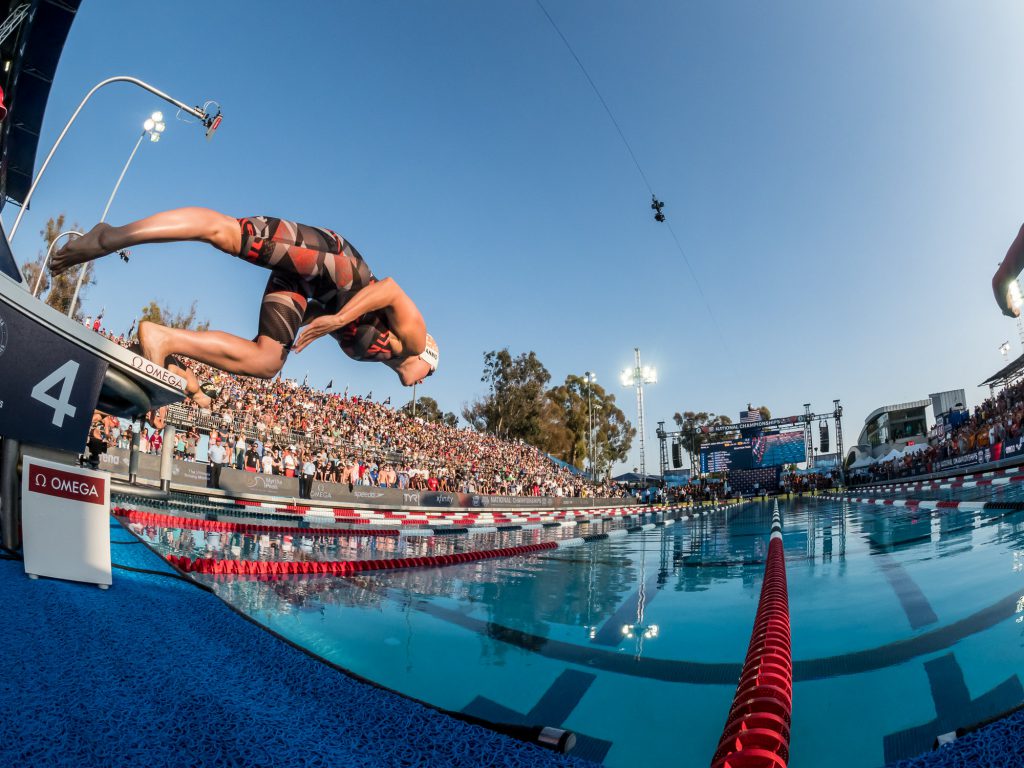
By Giulia Filocca, Swimming World College Intern.
With the 2018 Phillips 66 U.S. Nationals drawing to a close, it’s time to reflect on all this week had to offer. From record-breaking performances to unexpected scratches, this meet sent sizeable tremors across the swimming world. It left die-hard fans in awe and dismay, athletes in tears of joy or despair. Here is a breakdown of this year’s events.
An Exceptionally Fast Meet
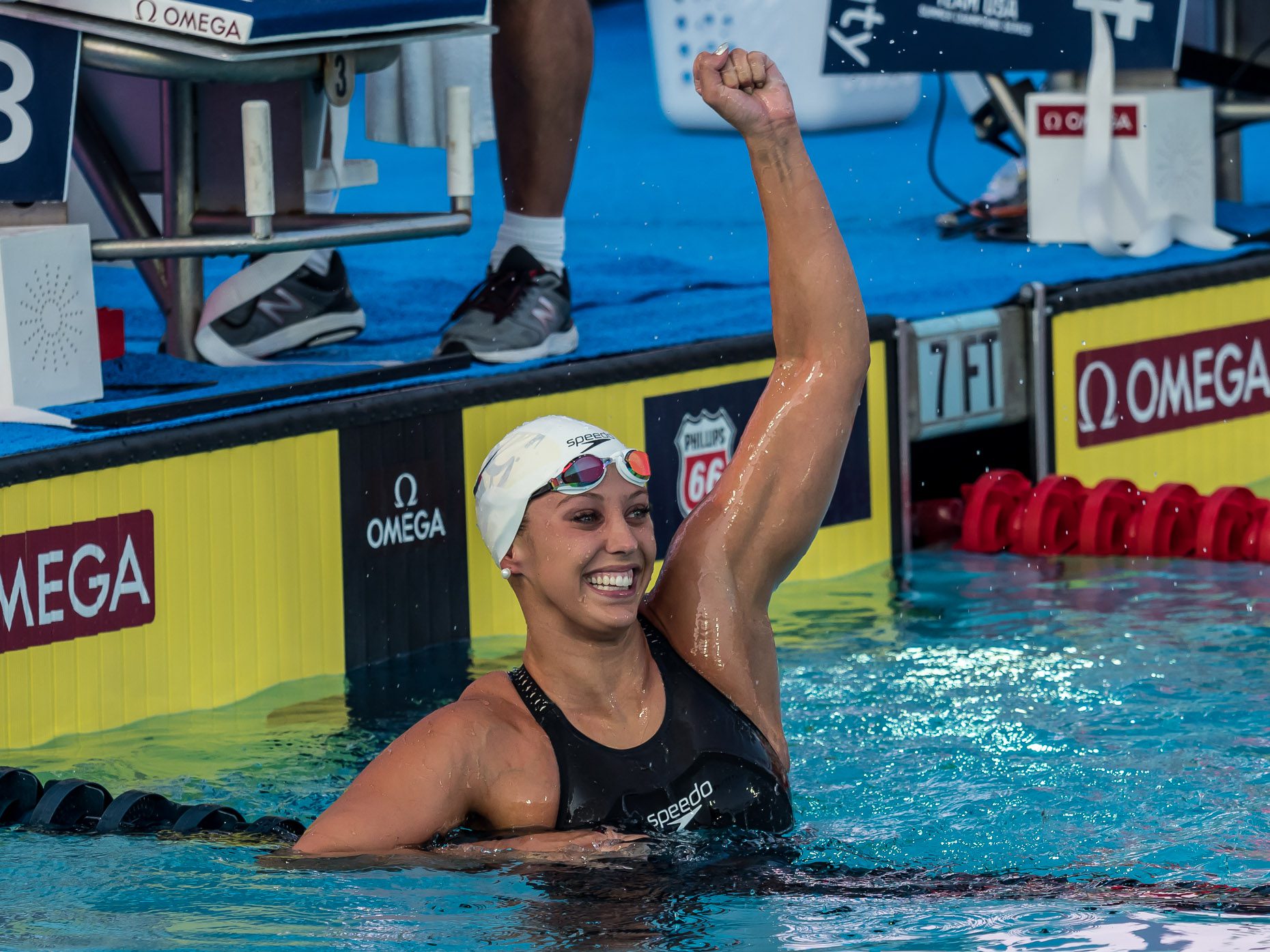
Photo Courtesy: Peter H. Bick
Times in the men’s 200 fly finals came as a speedy surprise, with all top 16 swimmers pushing under the 1:58.00 barrier. For perspective, the tenth seed in the 200 fly would have ranked first at 2016 Olympic Trials, while the twenty-fifth position would have comfortably made the B final at the 2017 U.S. Nationals. Just as incredulous was the men’s 100 freestyle. Harvard’s Dean Farris, who finished in sixteenth place, could have secured a spot on the 2016 Rio Olympics 4×100 relay team.
World, American, U.S. Open and Junior records were obliterated across the board; the most notable of these coming from Kathleen Baker and Hali Flickinger. California’s Baker solidified her status as world’s top 100 backstroker with a mind-blowing 58.00 world record. Equally impressive was Flickinger’s 2:05.87 in the 200 fly prelims, which broke Mary Meagher’s U.S. Open Record dating back to 1981. Ryan Murphy, Michael Andrew, Reagan Smith and Claire Tuggle also put up commendable performances.
Based on the women’s 200 free final, the American quartet – Katie Ledecky, Allison Schmitt, Gabby Deloof, and Leah Smith – could foreseeably threaten the existing 4×200 free relay world record. The Americans posted an aggregate time of 7:43.90, just short of the only women’s relay record left from the tech suit era – 7:42.08.
Newcomers to the National Team
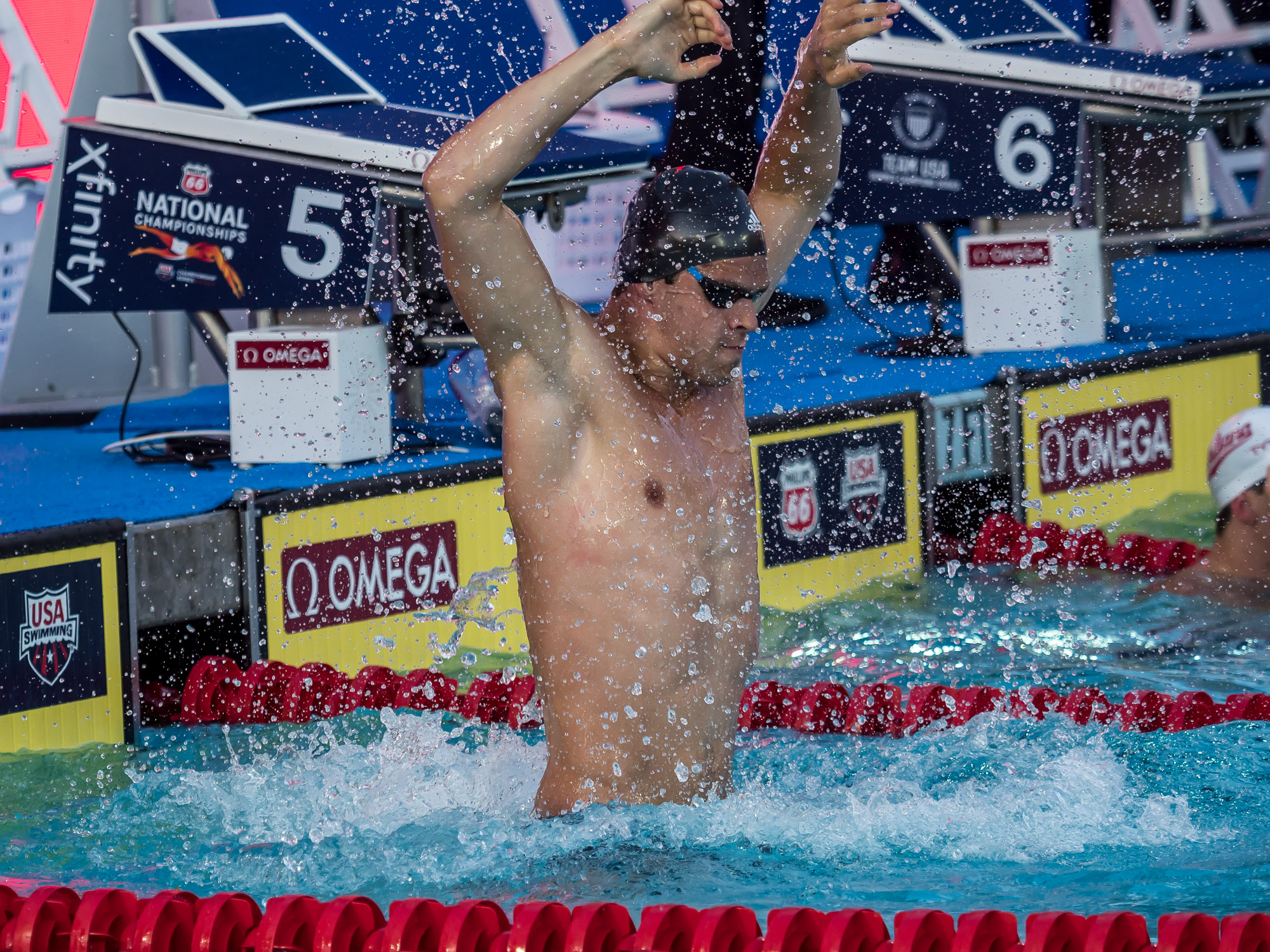
Photo Courtesy: Peter H. Bick
Having shattered over 100 National Age Group records, Michael Andrew finally surfaced from the junior ranks. Distinguished by his front–end speed, Andrew safely qualified for Pan Pacs and Worlds with blazing wins in the 50 fly, 50 breast, 50 free and 100 breast. He became the third fastest American in the 50 fly (22.93) and the U.S. Open record-holder in the 50 breast (26.86), effacing Olympic Champion Adam Peaty’s former mark.
Brooke Forde, a member of Stanford’s famed medley contingent, put up an exceptional breaststroke leg en route to her 4:35.09 400 IM. Her four-second time drop ranks her fifth in the world this year – one spot behind Penn State’s Ally McHugh. McHugh, 2017 World University Games medalist, ran down the field to become the sixth all-time fastest American in this event (4:34.80).
Setbacks and Noticeable Absences
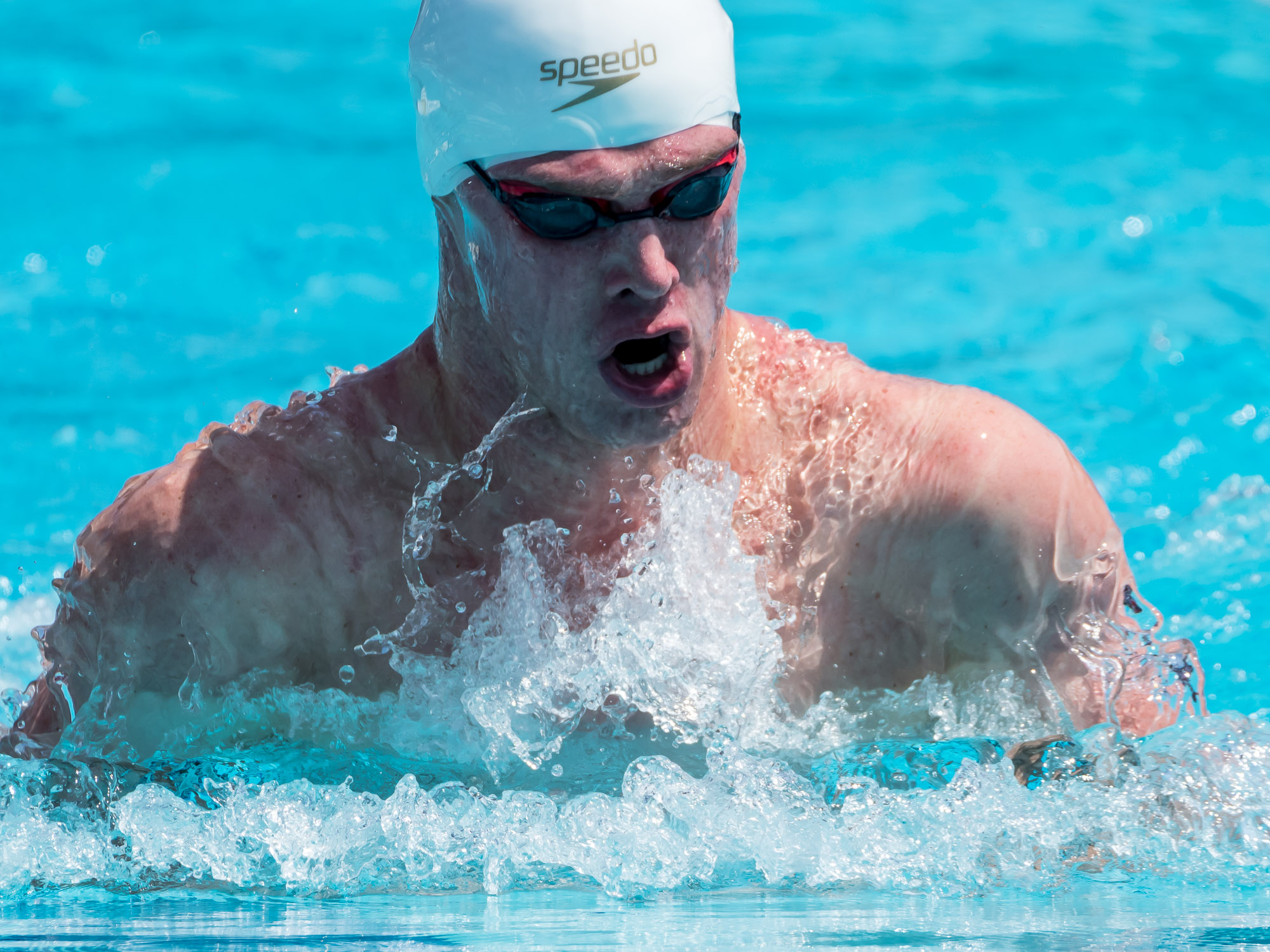
Photo Courtesy: Peter H. Bick
World Champion sprinter Caeleb Dressel left fans in distress after his sixth place finish in the 100 free and narrow losses in the 50 fly and 50 free. He quelled such anxiety with a winning 100 fly (50.50), a blistering three tenths faster than his 2017 World Championships time.
Short course American record-holder Ella Eastin fell ill with mononucleosis in early July, forcing her to withdraw as favorite in the 200 fly and 400 IM. Her tenacity and resilience shone through, however, as she secured a spot on the Pan Pacs team with a third place finish in the 200 IM. Olympian Clark Smith, who underwent a heart ablation in March, was not as fortunate – the Texas Longhorn added 11 seconds to place 44th in the 400 free.
Stand-outs Nic Fink, Cody Miller, and Kevin Cordes did not make either traveling team, falling shy of the top two positions in a highly-stacked breaststroke field.
In her long-anticipated return, Missy Franklin fell short of expectations with C-final finishes in the 100 and 200 free. Franklin, who joined the Georgia Bulldogs in January 2018, is not conceding defeat just yet – she is taking this meet as a “stepping stone” in her preparation for Tokyo 2020.
Despite posting stellar times this year, Ryan Lochte and Madisyn Cox were barred from competing for the next two summers. As per the U.S. Anti-Doping Agency, Lochte accepted a 14-month ban for an intravenous infusion, while Cox was handed a two-year doping sentence for traces of Trimetazidine.
Breakthrough Performances
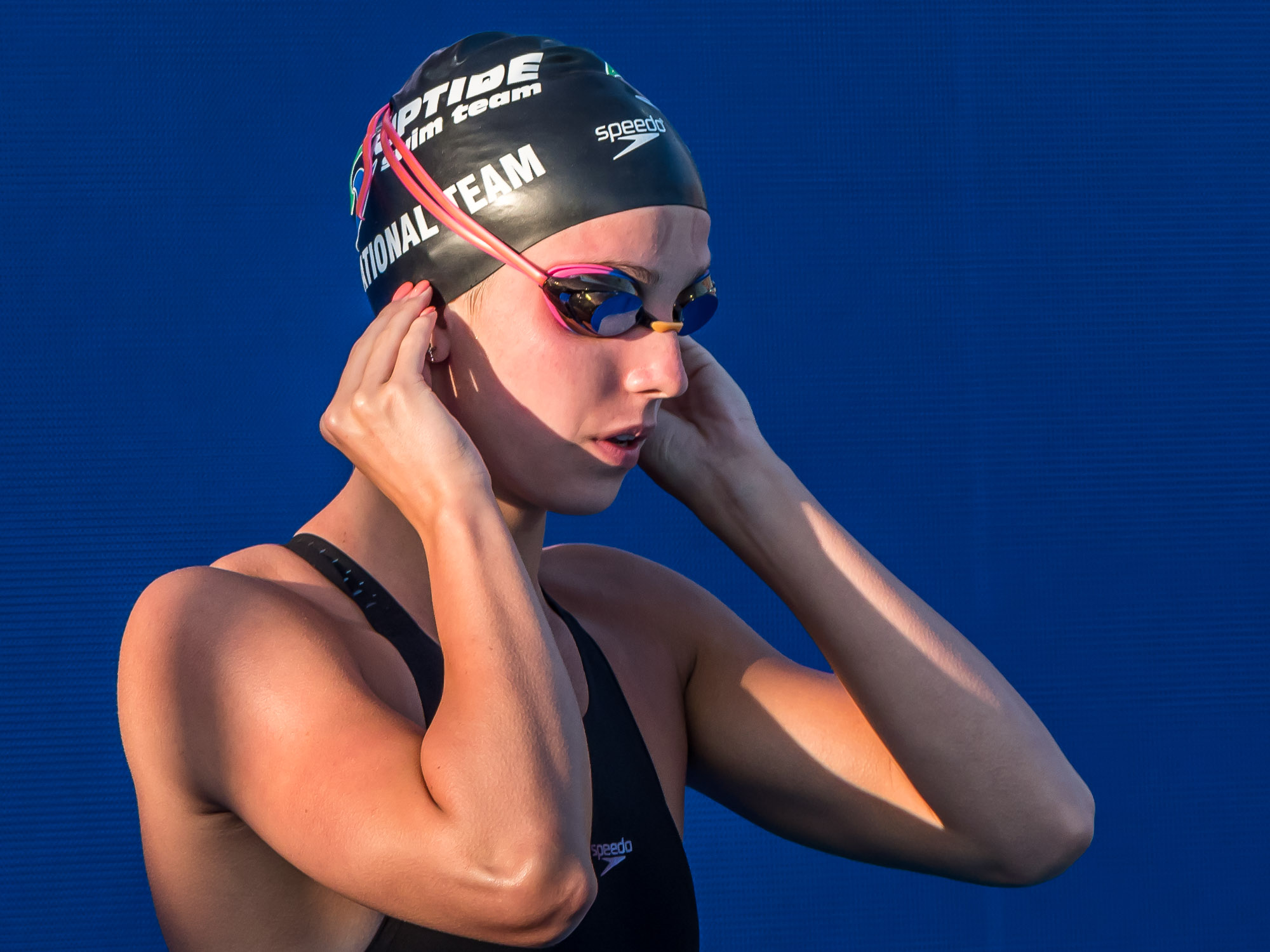
Photo Courtesy: Peter H. Bick
California’s Andrew Seliskar stunned the crowd in the 200 free, dropping his lifetime best from 1:48.35 to 1:45.70 to secure a first place finish.
Junior talent Gretchen Walsh blasted a 54.38 in the 100 free, the third-fastest in all-time 15-16 ranks behind Franklin and Simone Manuel.
Recruited as a freestyler, Stanford’s Katie Drabot scorched her 2017 best of 2:25.72 to post a startling 2:07.14 in the 200 fly.
Fourteen-year–old phenom Claire Tuggle made tremendous strides in the 200 free, clocking a 1:58.59 prelim swim that pushes Franklin’s record back to third all-time.
Arizona’s Justin Wright dethroned presumptive favorites Jack Conger, Pace Clark and Chase Kalisz in the 200 fly final to become seventh fastest American performer of all time (1:54.53).
Riptide’s Reagan Smith proved invincible in the backstroke events, clipping two new World Junior records in the 100 back (58.83) and 200 back (2:06.43).
Jack LeVant joins Michael Phelps as the only 17-18 American to crack the 1:47 barrier in the 200 free (1:46.39).
Successful Comebacks
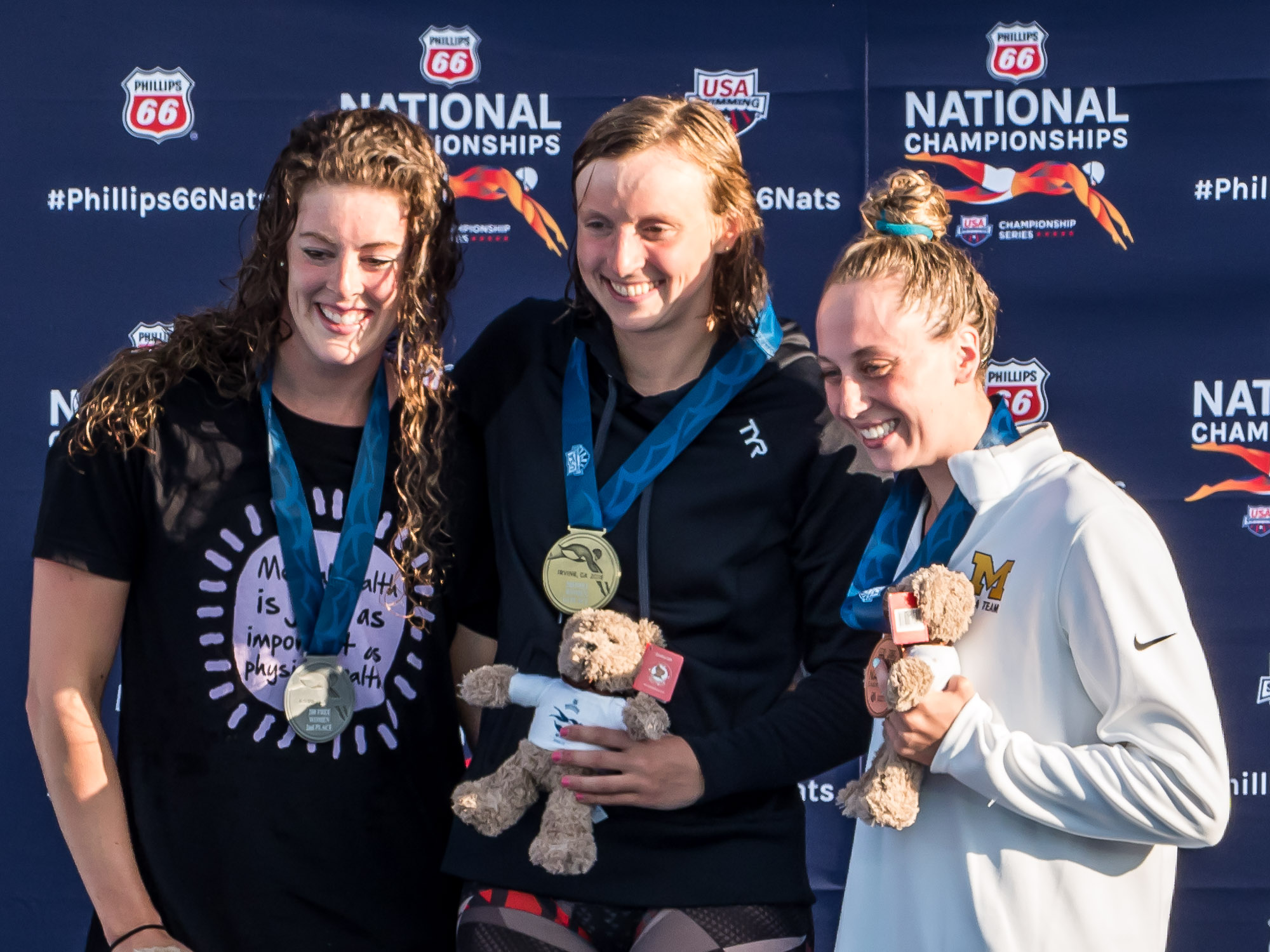
Photo Courtesy: Peter H. Bick
Allison Schmitt is the epitome of inspiration for many, publicly voicing her battle with depression post-2012 Olympics. After failing to qualify for the 2013 and 2015 World Championship teams, Schmitt comfortably trailed Ledecky with a 1:55.82 in the 200 free – her sixth fastest time.
After taking time off post-Rio, 2012 Olympic finalist Micah Sumrall cruised a 2:22.06 to out-touch front-runners Bethany Galat and Lilly King in the 200 breast final.
After a disappointing 2017 NCAAs, California’s Katie McLaughlin and Abbey Weitzeil cemented their respective comebacks in the 100 fly and 100 free. McLaughlin posted a lifetime best of 57.71 to touch second, while Weitzel recorded her first sub-54 swim since 2016 Olympic Trials.
All commentaries are the opinion of the author and do not necessarily reflect the views of Swimming World Magazine nor its staff.



